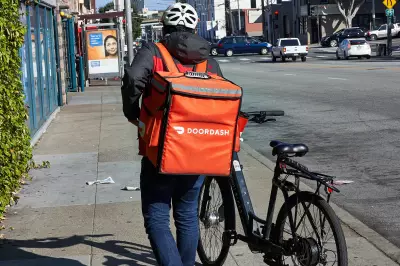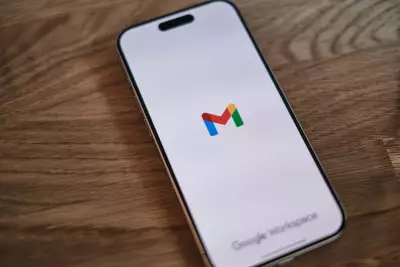7 Ways to Fight Welfare Fraud
Table of Contents
- By David Lukic
- Published: Apr 01, 2022
- Last Updated: Feb 27, 2025

Of the 329 million population in the United States, some 66 million receive some form of welfare. An enormous amount of record-keeping is required to prevent fraud and misuse of funds. Whether you are a welfare recipient – or if your identity has been stolen – you should beware of welfare fraud.
Fraud may mean that:
- Another person siphons off your welfare benefits.
- Someone has used your identity to claim welfare benefits.
- A medical office bills the government for procedures you didn’t receive.
- Someone has intentionally filed erroneous paperwork to claim more benefits than they’re legally entitled to.
- A person sells their benefits for cash.
- Getting benefits from a state other than their home state.
What is Welfare?
Welfare is a federal program implemented by state offices to provide low-income and temporarily disabled individuals access to necessities like food, toiletries, and household cleaners. The program requires individuals to qualify by producing proof of income and proof of identity.
Welfare is a part of a group of programs called the Safety Net, which includes:
- Medicaid – medical insurance offered to the elderly and permanently disabled.
- Pell grants – federal funding for a qualified individual’s educational expenses.
- Childcare – a benefit offered to qualified low-income parents.
- Supplemental Nutrition Assistance Program (SNAP) – the grocery program funded by the federal government that provides a small stipend per day.
- Social Security – a pension program paid for by payroll taxes; funds may be disbursed to age-qualified individuals and their offspring or the permanently handicapped.
Together these programs are designed to keep Americans from poverty, destitution, and homelessness.
The United States government spends about $743 billion on social safety net programs, collectively called welfare. About 20 percent of Americans collect welfare benefits, and about half of all children in the country will receive welfare before age 18.
Ways to Fight Welfare Fraud
Keep Your Private Data Safe
Keep details of your identity secure, including online. That means not using your social security number unnecessarily and keeping your real birth date and other identifying information off social media. Do not answer quizzes that ask for your first pet’s name or your mother’s maiden name, or where you went to high school. These data points can be used to guess passwords or as security questions to break into your online accounts.
Do Not Sell Your Information
If you receive welfare benefits, do not sell your information or your EBT card. You may be swept up in a fraud investigation and could face serious consequences if law enforcement discovers your participation in a fraudulent welfare scheme, no matter how small your role. In addition, if you lose your EBT card or if you do not receive it when it is due, report it to the proper authorities because it may be stolen.
Be Honest
If you are applying for welfare of any kind, do not under-report your income and do not over-report the number of dependents in your household. Authorities will audit the information and may arrest you for fraud even if someone else is telling you that everyone does it.
Do Not Collect Benefits for Dead Relatives
Whether social security, SNAP, Medicaid, or others, for someone who is dead. It is your responsibility to report the death of a family member to the authorities so their benefits will end. If you do not report the death and continue to collect that person’s benefits, you are committing fraud.
Protect Your Mail
If you cannot secure your postal service deliveries with a locking box, consider getting a post office box at the main branch. Mail theft remains a common way for thieves and welfare frauds to collect enough personal information to apply for benefits in someone else’s name.
Examine Your Bills
Examine all bills and medical paperwork that are sent to your address. If you are getting Medicare invoices for procedures that you did not have, it could be a sign that someone has used your identity to get services. Report any suspicious activity to the appropriate authorities.
Beware of scams
If you get unsolicited phone calls that appear to be from a welfare office, including the Veteran’s or Social Security Administration, do not give your social security number, birth date, or other personal details. The caller may request this information to “confirm” your eligibility. This could lead to another person fraudulently applying for benefits using your identity. If you’re in doubt, take the person’s name, hang up, and look up the phone number yourself. You may find that the government office you reach has never heard of your caller. Official government business is rarely conducted on the telephone.
Is Fraud a Major Issue with Welfare?
Welfare fraud accounts for a tiny fraction of the social safety net budget. One source that studied the issue said that SNAP (food assistance) fraud amounts to about $11 of every $10,000 disbursed. It is argued that the benefits far outweigh the small percentage of money lost to fraud, as more than 40 percent of all Americans are considered low-wage workers (making just over $10 per hour). Statistics show that two-thirds of Americans will use a year’s worth of welfare benefits at some point in their prime, between the ages of 20 and 60.
History of Welfare Fraud
Poverty has historical roots in the United States, with persons brought to the country as slaves and indentured servants as well as immigrants fleeing their home countries for better opportunities. Because welfare programs seek to provide a lifeline to individuals and families suffering from a lack of resources, they have long been a partisan target for politicians. Some, like former President Ronald Reagan, used the stigma of poverty to maneuver cuts to the programs in the name of smaller government.
Reagan’s famous “Welfare Queen” speech cemented the image of the lazy, manipulative, and criminal single Black mother in American culture. There was such a woman, Linda Taylor of Chicago, who was convicted of welfare fraud for using aliases to collect benefits. A court found her guilty of wrongly collecting less than $10,000. The effect of the “Welfare Queen” label stigmatized all single Black mothers as potential thieves at fault for their own predicaments.
In response to Reagan’s long-lasting tale of the fraud perpetrated by Taylor, President Bill Clinton later spearheaded a welfare reform act called the Personal Responsibility and Work Opportunity Reconciliation Act of 1996. It capped certain welfare benefits at five years over a person’s lifetime.

















